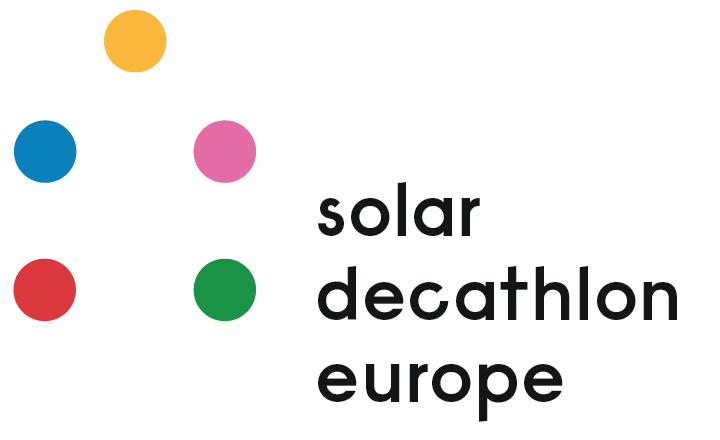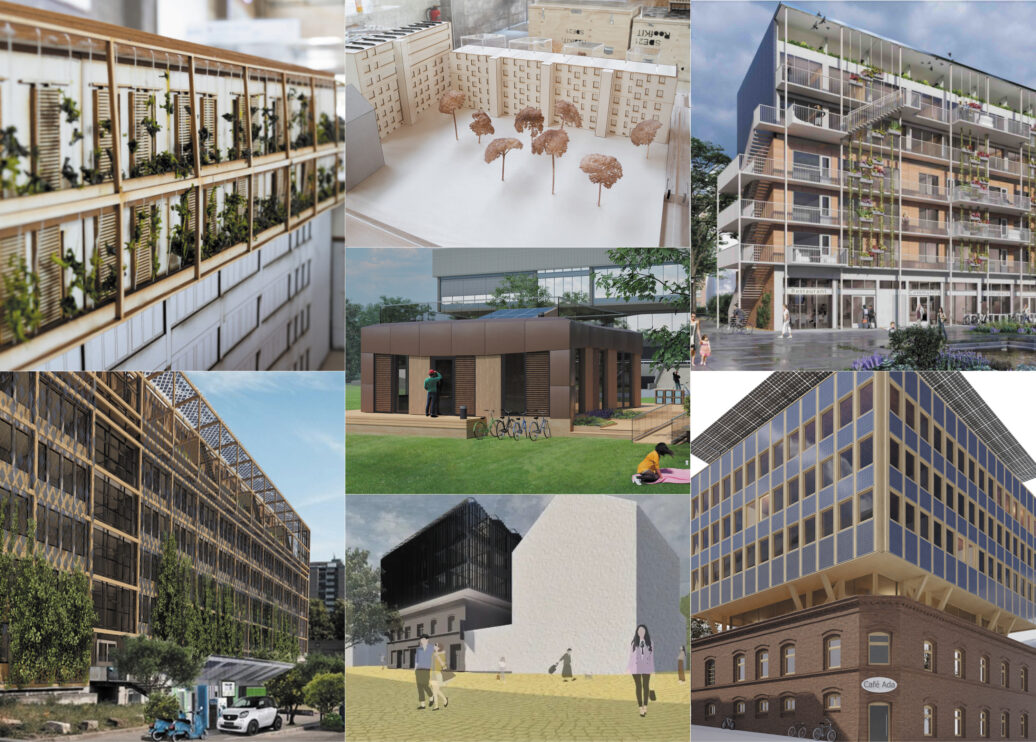Third of a trilogy on the sde21»22 Teams.
This article from our SDE21»22 series presents a set of resource responsible Decathlete Teams. They are juggling key Competition deliverables surrounding urban renovation and construction, and are simultaneously addressing other important features, such as comfort, education, community, and resource-awareness. These Teams believe that there is a strong need for innovation and execution in the multidisciplinary field of urban sustainability; that the only way to achieve this is by gathering diverse people under the same visions and umbrella of responsibility. They recognise the sheer importance of raising awareness and developing real time solutions for the greatest challenges of our times. The SDE21»22 Decathletes are young leaders of the green environment, and we are delighted to share their initiatives. Indeed, they are catalysing positive socio-ecological shifts in their communities. They claim that sustainability must be learned and adopted by all, to cement behavioural change, and shape mindful, resource-optimised communities.
We will go on a journey through four countries. We’ll have a short stop in seven different cities where we will be welcomed by the Teams who are ready to showcase their perspectives over the SDE21»22 challenge. But enough from us, fasten your seatbelts, and let us be carried by their enthusiasm and imaginations!
We are making a first stop to visit Team FIRSTlife from Prague, Czech Republic. They intend to respond to the SDE21»22 renovation challenge through students’ perspectives and accommodation conditions. One of the general intentions of the SDE21»22 is urban resource efficiency (energy-water-food-waste-spatial-material). Team FIRSTlife proposes a solution that is specifically catered to improving student dormitories. Their solution can also be further extended to residential buildings. With extra attention to the management of water consumption, passive heating/cooling and equipment, the Czech Team also proposes to use local biodegradable materials such as wood or timber components, as a response to the bark beetle calamity from which their country has suffered. They also hope to apply the phenomena of distributed urbanisms to help regenerate rural areas and improve regional resilience.That’s a captivating story, right?
Continuing our discovery of the SDE21»22 Teams, we move to Stuttgart, Germany. Here, we meet Team Collective Laboratory, also known as Team Collab. Their proposal aims to develop an adaptable and modular extension for their campus (University of Stuttgart). Team Collab’s objective is to use the architectural concept to create a suitable mix of private and common spaces, blending contemporary urbanisation with campus living. Their idea combines private spaces, which are kept as small as possible, with flexible areas that can be used for common purposes. As the building opens to the outside, it fosters accessibility and socialisation and thus, increases the communal connectedness, stimulating social engagements. We can say that their integrative and youth focused approach is a very creative way of addressing their contextual urban challenge!
We are departing from Stuttgart and are heading for Team X4S or ‘Extension for Sustainability’ from Biberach, Germany. They are responding to the challenges of gentrification and hope to bring resource responsible living to the center of Wuppertal. As the Team has emerged from the initial phases of the Competition, they are now ready to demonstrate their solution. Their integrated proposal is a four-level vertical extension to café Ada; a renovation scenario provided by SDE21»22 Organisers for Decathletes to address. Their project touches on many dynamics, including spatial and water-energy-food-waste efficiency, and embraces cutting-edge construction techniques. Their main goals are to educate, innovate and renovate. It seems as if they are ready to reimagine their community! We wish them all the best!
What about us? We are continuing our journey through the world and our next stop is Bucharest, Romania. Here we meet Team EFdeN. The experienced Romanian Team also focuses on the regenerative renovation of Café Ada. They simultaneously investigate the dynamics of single residences and communal spaces for improved happiness and wellbeing. Their approach embraces prefabricated walls with thermal insulation made from straw. Life-cycle assessments are conducted for all materials to ensure everything can eventually be recycled or reused. Passive design techniques and innovative technological strategies substantially reduce the associated costs of production, transportation, utilities and maintenance. We greatly appreciate your unique approach towards intergenerational, circular and wellbeing thinking!
Next, we are welcomed by Team Symbiotic Urban Movement (SUM). Their name offers us a glimpse into their overall approach; to establish symbiotic relationships between the old and new buildings; the user and the building; and the community and biodiversity. While Team SUM is based in the Netherlands, the Team is representative of more than 13 different nationalities. This diversity highlights the importance of international cooperation in achieving a just transition. Their renovation proposal is based on research that suggests that adding an average of two layers of rooftop extensions to current underperforming tenement buildings in the Hague will help address the increased demand for housing by 2030. This approach to urbanisation keeps existing communities in place, creates new housing, improves utility efficiency and overall use of public space.
Do not leave us yet! We are continuing our story with Team VIRTUe from Eindhoven, the Netherlands. They are also investigating a rooftop extension of café Ada. Their method of bringing people together is like the ripple effect. Engaging in the SDE21»22 Competition is perceived by this Team as “throwing a stone into the water”. This metaphorical stone is increasing communal awareness of the socio-ecological challenges in our cities. We are inspired by their multi-layered approach and are very excited to see how it develops.
Finally, on our last stop, we visit Team Deeply High. This Team boasts a multicultural background as the group consists of students from Istanbul Technical University and the Technical University of Applied Sciences, Lubeck. They propose to rejuvenate the built environment by combining “yesterday’ s wisdom with today’s technology”. Their main goal is to develop an ecosystem where people can live in harmony with nature without sacrificing the benefits of cutting-edge technologies. Their approach to urbanism is emergent, contextual, and holistic. A work of art in the making!
At the end of our journey for today, we leave you bearing in mind the innovative stories of these intrepid Decathletes. They are concurring new territories and climbing mountains in search of a regenerative urban environment. We are more than curious to see how their projects unfold at the end of this SDE21»22 chapter! We believe all the Teams competing in the SDE21»22 are effectively grappling with the necessary themes to achieve a just transition; where we not only realise an environmentally regenerative future, but perhaps more importantly, a world that is socially inclusive, cohesive, and equal.
Authored by Shawn Alimohammadi
Article contributions by Alexandra Ene & Francesco Longo
Visit the featured Teams’ websites here:
Team FIRSTlife
Team Collab
Team X4S
Team EFdeN
Team SUM
Team VIRTUe
Team Deeply High
See all the Teams participating in SDE21 here: SDE21 Teams and Projects
Other articles in this series:
Lights in the Background
Activating Communities & Rethinking Urban Textures
Image credits from left column to right column:
Team Firstlife
Team Collab
Team Deeply High
Team VIRTUe
Team EFdeN
Team SUM
Team X4S

